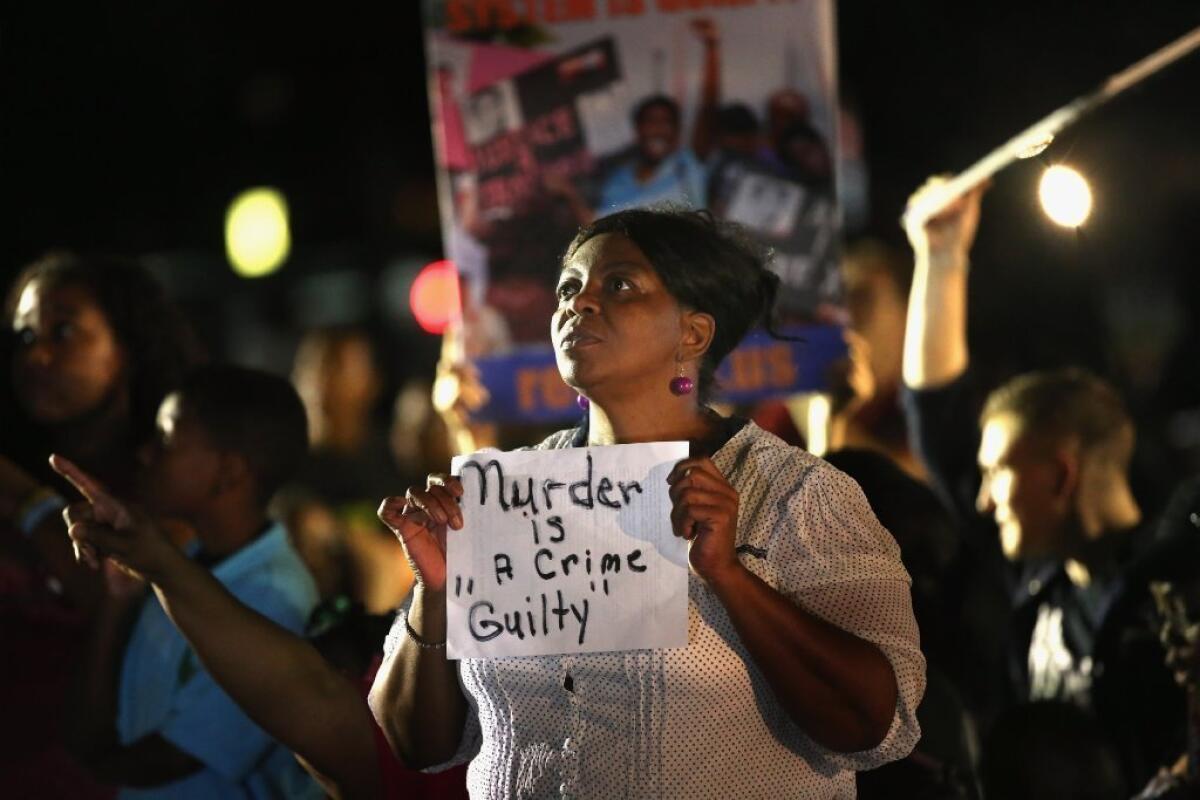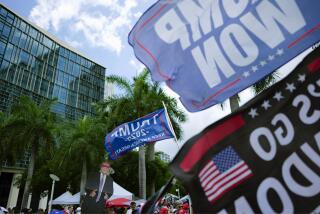For 22 days, Zimmerman jurors lived in a law enforcement bubble

How do you guarantee a fair jury for one of the most talked-about criminal trials in the country? You lock ‘em up, of course.
The six female jurors chosen to decide whether George Zimmerman would go free or head to prison spent 22 nights in plush detention as they weighed his case -- squirreled away from the public and sequestered in a hotel by deputies so they wouldn’t be tainted by media coverage and loose talk of the case.
And according to new details released by the Seminole County Sheriff’s Office, that bit of judicial precaution didn’t come cheap: It cost $33,000 to feed, house and entertain the six jurors when they weren’t in the county courthouse.
There’s a reason for such sequestration. Every time a criminal case springs in front of the national media’s headlights, constitutional amendments collide.
The 1st Amendment guarantees that the news media can discuss almost anything it wants about a criminal case before it reaches trial. However, the 6th Amendment guarantees defendants an impartial jury, and some defense attorneys have decried the media’s talent for hyping a case before all the facts are determined -- potentially swaying jurors before they ever reach the jury box.
Sequestration -- ordering jurors away from the public -- is designed to prevent that sort of legal contamination. For the six Zimmerman jurors, that meant 22 nights in the Marriott on International Parkway in Lake Mary, Fla., with deputies monitoring their phone calls, mail, reading materials and television and Internet use.
So what was that like? In a news release, the Seminole County Sheriff’s Office explained:
“During the sequestration, jurors had individual rooms and convened regularly in a suite for meals and to socialize. Jurors watched television and movies, exercised at the hotel fitness center, and spent weekends being visited by family and friends. Jurors could also request visits from members of the religious community. Anyone visiting members of the jury was asked to sign an agreement indicating they would not discuss the case with the jury member or disclose any information to outside parties about the details of their visit.”
Not that the Marriott was a total prison (the hotel cost about $1,000 a night). Officials said that the jurors were allowed outings, on the sheriff’s office’s dime, for bowling, museums, occasional restaurant meals, and hitting the theater for “World War Z” and “The Lone Ranger” -- which had previous approval of the court, of course.
The jurors were also allowed to check their voicemail once a day and make calls as long as a deputy was present.
The isolation was apparently so total, and so effective, that Juror B37 “had no clue, no clue whatsoever” that the country had become entangled with the blow-by-blow arguments of exactly what happened between George Zimmerman and Trayvon Martin in Sanford, Fla., on Feb. 26, 2012.
When the jurors arrived at the hotel for the final time to pick up their things after the not-guilty verdict, “we got to the hotel and the parking lot was just a regular parking lot,” the juror told CNN’s Anderson Cooper. “By the time we came out, it looked like Disney World -- there was media, there were police ... and it really kind of started to sink in.”
She added, “It was just unbelievable that it had gotten so big and so political -- not really political, I don’t want to say that -- but so emotional for everybody involved.”
And for the Seminole County Sheriff’s Office, its costs for the trial meant $320,000 spent on overtime, equipment, other trial-related expenses, according to a preliminary estimate. Under Florida law, the clerk of the court is on the hook for the food and lodging costs.
As for the jurors, little else is known about them. They’re free to go about their lives, but their names remain hidden.
ALSO:
Civil rights leaders call for action after Zimmerman acquittal
Indiana doctor accused of murder waives extradition to Nebraska
Zimmerman trial: 4 jurors say Juror B37 does not speak for them
More to Read
Start your day right
Sign up for Essential California for news, features and recommendations from the L.A. Times and beyond in your inbox six days a week.
You may occasionally receive promotional content from the Los Angeles Times.







